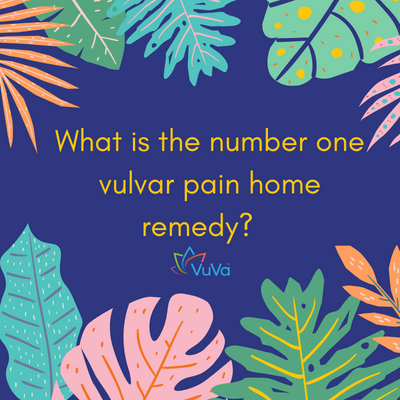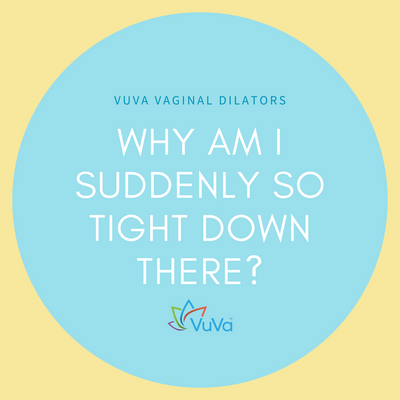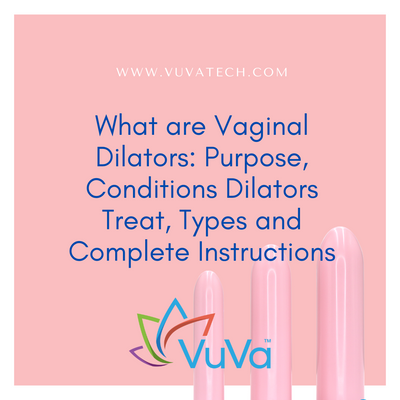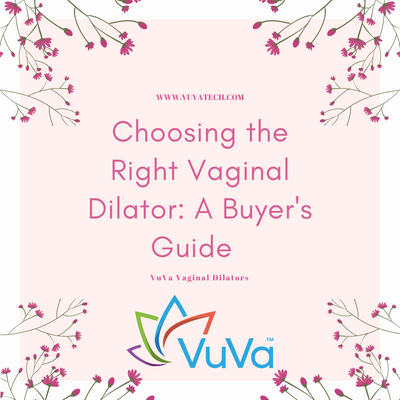
| Tara Langdale
Are You Getting Recurrent BV and UTIs in the Perimenopause?
This complexity brings many benefits, but it’s a double-edged sword since it also means that there are plenty of things that can go wrong – especially during the perimenopause. For instance, as is the case in your gut, many types of bacteria coexist in the vagina - a little like a mini-ecosystem. Your vagina requires an appropriate balance of good and bad bacteria in order to maintain a healthy state.
Fluctuating levels of both hormones and bacteria can alter its precious balance, leading to challenging symptoms and conditions. This problem may well worsen when you hit perimenopause and your body embarks on its mid-life journey of gradual changes. If and when your vaginal balance is upset, two of the most common problems to arise are bacterial vaginosis (BV) and urinary tract infections (UTIs).
Read on to find out how to spot BV and UTIs, why they happen in the perimenopause and what you can do to prevent and treat them…
The symptoms of bacterial vaginosis and urinary tract infections
Bacterial vaginosis
Firstly, know that BV is actually very common. In fact, one in three women in the U.S. have had BV, and for many of them, it keeps on coming back. Since the symptoms of BV are quite unpleasant, this can be very frustrating and commonly causes embarrassment – particularly when it comes to sex. The symptoms of BV do vary, but generally the condition is characterized by a fishy odor, as well as a thin, watery off-white, yellow or grey vaginal discharge. Some women experience itchiness or irritation too.
Urinary tract infections
If you are getting intense burning pain when urinating, and/or a feeling of urgency (only to find out you have little or nothing to pass), there is a good chance you have developed a UTI. For an unfortunate few, blood in the urine and bladder spasms afterwards are a problem. UTIs can make you feel pretty awful and have you dreading going to the toilet. However since they can lead to kidney infection it’s important to treat them quickly.
Why you may have recurrent BV in the perimenopause
One study of 1,486 smears noted that 6.3% of postmenopausal women without HRT and 5.4% of postmenopausal women with HRT tested positive for BV. Although BV can happen to women of any age, perimenopausal and post-menopausal women are more likely to develop it due to diminishing levels of estrogen, which plays a crucial role in keeping the vaginal flora levels in check.
Estrogen allows the ‘good’ bacteria (lactobacillus) to thrive. These bacteria create an acidic environment in the vagina, lowering its pH. The vagina should be naturally slightly acidic, since this keeps the ‘bad’ bacteria in check. So when estrogen starts to decline during the perimenopause, the ‘bad’ bacteria are better able to flourish and BV can be the result.
Reasons for recurrent UTIs in the perimenopause
It’s a similar story with UTIs. In fact, studies have concluded that UTI is the most common bacterial infection in both young and elderly women. Recurrent UTIs can happen to women at any point in their life for the same reason: their vaginal flora can all too easily get out of balance.
Having a lot of sex is understood to be one of the main risk factors for developing a UTI. That’s because sex can transfer bacteria in the vagina and rectum to the urinary tract. During the perimenopause – and particularly after the menopause – frequent sex may not be the main reason. It’s likely that your UTIs are happening because of the hormonal changes. These changes can lead to vaginal atrophy, incontinence or difficulty emptying your bladder completely. There is a link between vaginal atrophy and recurrent UTIs.
How to prevent and treat BV and UTIs
BV
Although BV is often treated with antibiotics, this isn’t really a good idea because it destroys bacteria indiscriminately (as well as the good bacteria in your gut). This can lead to yeast infections, or later recurrences of BV.
If you think you have BV (or you test positive after a swab), try out a course of pessaries containing lactic acid and probiotics designed to replenish the vaginal flora. There are lots of products on the market for rebalancing vaginal pH and flora; most importantly, they won’t lead to any other health problems.
Preventing BV can be tricky, because there are so many things that can alter the pH and destroy the good bacteria. Antibiotics, semen, douching, smoking, using perfumed products or consuming an acidic, sugar-laden diet can all contribute. Avoiding these things is a good idea if you are getting recurrent BV.
Consider using condoms if you think semen is disrupting your pH, and keep your vagina clean – just don’t douche. Cotton underwear is best, and a good probiotic supplement could also help.
UTIs
As for preventing UTIs, developing good urination habits is key. When urinating, be sure you’re relaxing your pelvic floor and don’t rush to empty the bladder. Urinating after sex is a good idea, as this can flush away bacteria that might have entered the urinary tract.
There are many natural UTI remedies you can try. Cranberry extracts and juices are often reported to have good results, and this is confirmed by studies. Supplements may be better than juices because of the sugar content in commercial juices. Again, antibiotics are not a good option because of the likelihood of developing yeast infections. Although the jury is out, it is thought that apple cider vinegar can help, as it contains chlorogenic acid. This may reduce the production of inflammatory substances that worsen UTI symptoms. Vitamin C is also reported to have positive effects. For perimenopausal and post-menopausal women, vaginal estrogen creams or rings may help to restore the bacterial balance.
Although recurrent BV and UTIs can be stressful, once you know what to do about them it shouldn’t be too difficult resolve them once and for all. We hope you found our article helpful, and we wish you the best of luck in getting back to good vaginal health!
Resources
Ncbi.nlm.nih.gov/pmc/articles/PMC130764/
Ncbi.nlm.nih.gov/pmc/articles/PMC3246510/
Health.harvard.edu/blog/not-again-when-utis-wont-quit-at-midlife-201509258353
Do you have painful intercourse?
Dilator therapy helps improve pelvic health and female sexuality. They are used to help a wide variety of female health concerns. Speak to your doctor today about how dilator therapy can help you.
Do you need to order vaginal dilators so you can start your pelvic floor therapy process? Made in the USA. Visit www.vuvatech.com
VuVa Dilator Company Helpful Links:
How do Neodymium Vaginal Dilators work?
7 Reasons for a Tight Vagina and How to Loosen
How to Relax Vaginal Muscles, Vaginismus & Sex
Vaginal Stretching - Keeping in Shape with Dilators
Do Dilators Really Work? Yes, and They can Improve Your Sex Life!
Shop for VuVa Vaginal Dilators
Tara Langdale Schmidt is the inventor of the VuVa Dilator Company. She has pelvic floor dysfunction herself and wanted to create a dilator set that is made in America that women can trust. VuVatech has been in business since 2014 and has helped over 50,000 women all over the globe. She patented the Neodymium Vaginal Dilator, that is clinically proven to help with blood flow and nerve pain.













